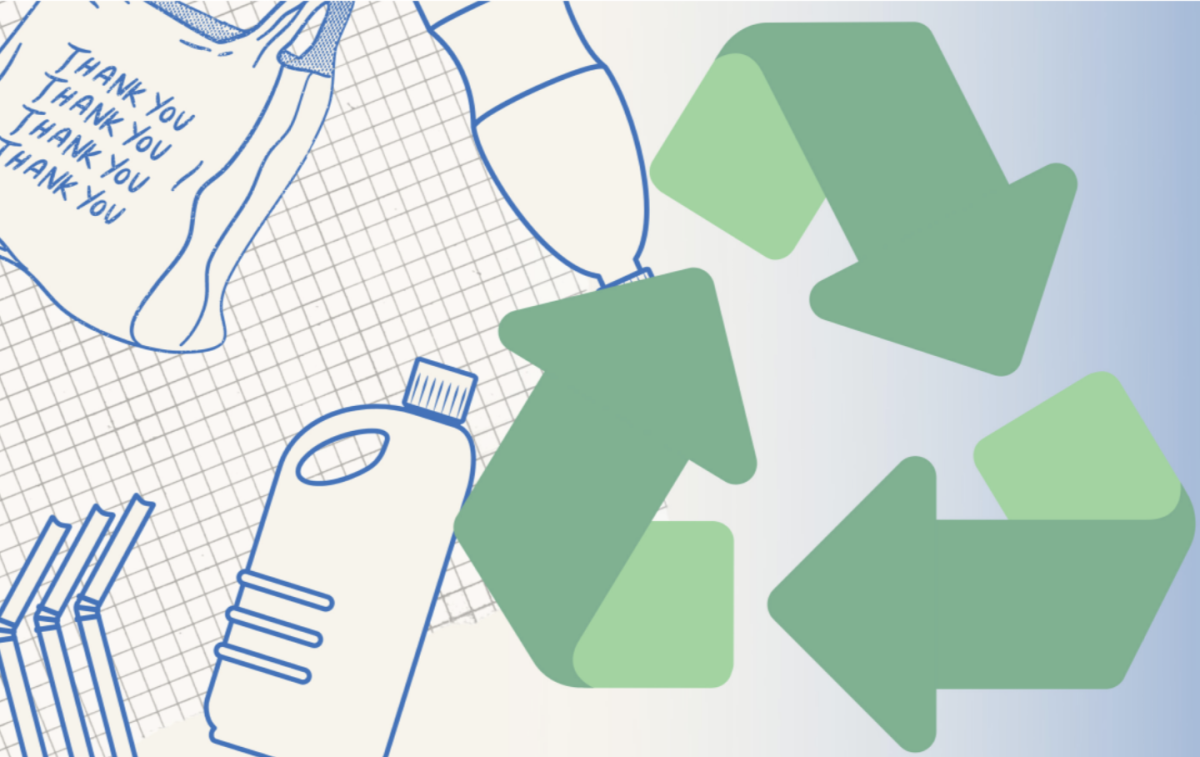Learning the proper way of recycling is important
Have you ever wondered where all our recyclables went after they were collected? You may think that everything is good if you put recyclables in the blue bin, but in reality, it’s not.
According to the U.S. Environmental Protection Agency (EPA), about 32.1% of waste was recycled and composted (94 million tons recycled out of 292.4 million tons) in 2018. Estimated by the EPA, 75% of waste is recyclable, according to DoSomething. Learning the proper recycling method is important, not only for our community but also for other countries, such as China, since the U.S. depends on them to discard our recyclables.
The U.S. exported 16 millions tons of recycled paper, plastic and metal to China in 2016, according to Columbia Climate School. If China does not accept our recyclables, recycling would be harder to maintain and most items would end up in waste.
Therefore, to fix the U.S.’s broken recycling system and to make sure all recyclables end up in the right places, we must reduce product contamination and treat recycling like it is a part of the economy, because only the best and purest recyclables are accepted by other countries.
The U.S. does not have a very sophisticated recycling system. There isn’t a federal recycling law in the U.S., so state and local governments have to make their own laws. This leads consumers to misunderstand what materials are accepted as recyclables and the proper way to recycle them.
Not all recycling rules are the same state by state. For example, in San Diego, California, residents can recycle frozen food boxes, however, in Portland, Oregon, residents can not.
The U.S. follows a “single-stream recycling system,” according to EcoWatch, meaning all recyclables are placed in the same bin and left to the recycling facilities to clean and sort. Since consumers are not those cleaning or sorting the recyclables, they might just toss them in the recycling bin without properly cleaning them.
According to the City of Philadelphia Recycling Program, consumers should empty, clean and dry recycled material before placing it in the bin. All plastic sleeves and bags should be removed as well and discarded into garbage bins.
As a native Philadelphian, I realize that many people tend to discard canned drinks and pizza boxes in a recycling bin without cleaning them. It is good that they want to recycle these materials, however, without properly cleaning them, it’s no different from placing the recyclables in a garbage bin. The residue left in the can may wet cardboards, and the grease left in the pizza box may contaminate other recyclables, resulting in them no longer being recyclable. It’s not hard to recycle something, but it’s hard to prevent a recycled object from being contaminated.
In 2018, to combat a massive buildup of unusable and contaminated recyclables in China, China’s National Sword announced a policy to ban imported recyclables that did not meet their new purity standards, which forced the U.S. to transport their recyclables to other countries.
The National Sword prevented the import of recyclables mixed with trash, the wrong type of recyclable or low-quality recyclables like greasy paper. In other words, imports are required to have about 99.5% purity, which has been proven to be difficult for exporters to achieve.
Cleaned recyclables are sold on the open market to buyers who are in need of recycled materials, like plastic pellets or post-consumer paper, to create a new product.
Processing and creating recycled goods costs money and since contaminated recyclables are harder to process into new products, they usually don’t make a profit for buyers, so it’s important to keep recyclables as pure as possible.
There is more to placing recyclables in the blue bin. Maintaining proper ways of recycling is crucial to the health of our planet. If recyclables are contaminated by impure materials such as soda liquid, grease, or mushy cardboard, they will most likely end up in the waste pile.
No country wants contaminated products since they are harder to process into new products.
If everyone in the U.S. recycled properly and made sure to properly clean out their recyclables, they would be more marketable and profitable for buyers of recycled materials, leading to less plastic in the oceans.
































